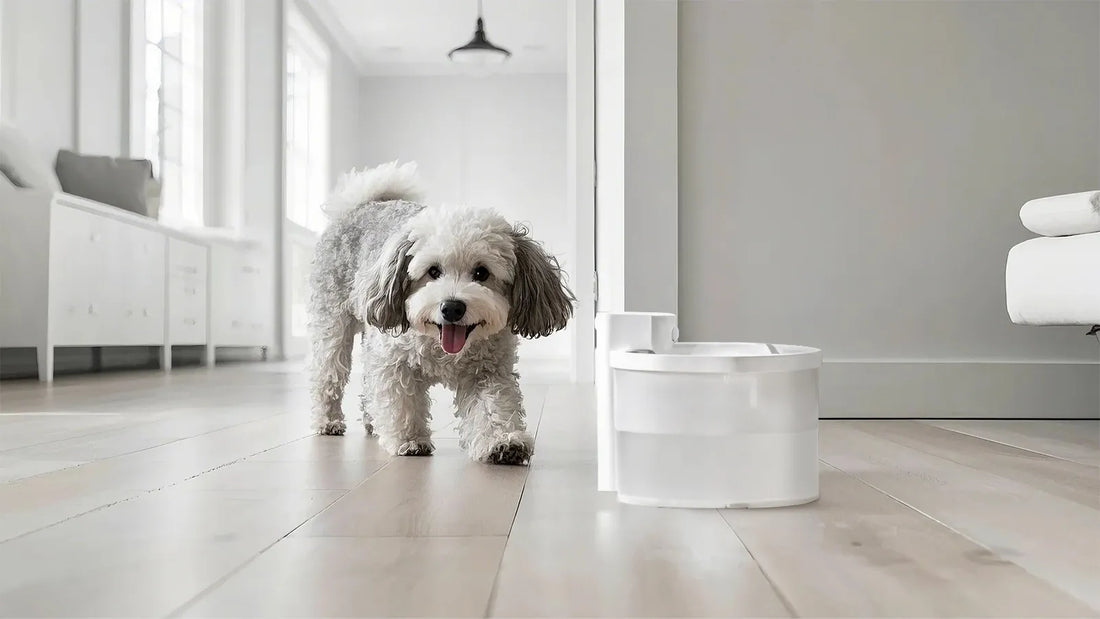If you've noticed your dog not eating or drinking and just laying around, it's natural to feel concerned. Dogs are typically energetic and food-motivated creatures, so a sudden change in behavior can be alarming. This article explores the possible causes of this behavior, when to seek professional help, and how to care for your furry friend during this time.
Common Causes of Loss of Appetite and Lethargy in Dogs
There are numerous reasons why your dog might stop eating, drinking, and become lethargic. Some causes are minor and temporary, while others may indicate a more serious underlying condition. Below are some of the most common factors to consider:
1. Illness or Infection
Illnesses such as viral or bacterial infections can cause your dog to lose interest in food and water. Conditions like parvovirus, distemper, or even a simple stomach bug can lead to lethargy and a lack of appetite. If your dog shows additional symptoms like vomiting, diarrhea, or fever, it's crucial to consult a veterinarian.
2. Dental Problems
Dental issues, such as tooth decay, gum disease, or a broken tooth, can make eating painful for your dog. If your pet is avoiding food but seems otherwise healthy, it's worth checking their mouth for signs of discomfort or inflammation.
3. Stress or Anxiety
Dogs are sensitive creatures, and changes in their environment or routine can lead to stress or anxiety. Moving to a new home, the arrival of a new pet or family member, or even loud noises like fireworks can cause your dog to stop eating and drinking.
4. Aging
As dogs age, their metabolism slows down, and they may become less active. Older dogs are also more prone to health issues like arthritis, kidney disease, or cancer, which can affect their appetite and energy levels.
5. Medication Side Effects
If your dog is on medication, it's possible that the side effects are causing a loss of appetite or lethargy. Always consult your vet if you notice changes in your dog's behavior after starting a new medication.
6. Environmental Factors
Extreme weather conditions, such as excessive heat or cold, can affect your dog's appetite and activity levels. Ensure your pet has a comfortable environment and access to fresh water at all times.
When to Seek Veterinary Care
While some causes of your dog's behavior may resolve on their own, others require immediate attention. Here are some signs that it's time to consult a veterinarian:
- Your dog hasn't eaten or drunk anything for more than 24 hours.
- They are vomiting or have diarrhea.
- You notice signs of pain, such as whining or limping.
- Their gums appear pale or yellow.
- They are unusually lethargic or unresponsive.
Early intervention can make a significant difference in your dog's recovery, so don't hesitate to seek professional advice if you're concerned.
How to Support Your Dog at Home
If your dog is not eating or drinking and just laying around, there are steps you can take to support them at home. However, always consult your vet before making any changes to their care routine.
1. Offer Tempting Foods
Try offering your dog small amounts of their favorite treats or a bland diet like boiled chicken and rice. Avoid forcing them to eat, as this can cause additional stress.
2. Ensure Hydration
Dehydration can be dangerous for dogs. If your pet is refusing water, try offering ice cubes or a small amount of broth to encourage them to drink.
3. Create a Calm Environment
Reduce stressors in your dog's environment by providing a quiet, comfortable space for them to rest. Avoid loud noises or sudden changes in routine.
4. Monitor Their Condition
Keep a close eye on your dog's behavior, appetite, and hydration levels. Note any changes or additional symptoms to share with your vet.
5. Avoid Overexertion
If your dog is lethargic, avoid forcing them to exercise or play. Allow them to rest and recover at their own pace.
Preventing Future Episodes
While not all causes of loss of appetite and lethargy can be prevented, there are steps you can take to reduce the risk:
- Provide a balanced diet and ensure your dog has access to fresh water at all times.
- Schedule regular veterinary check-ups to catch potential health issues early.
- Maintain good dental hygiene by brushing your dog's teeth regularly.
- Minimize stressors in your dog's environment and provide plenty of mental and physical stimulation.
By being proactive about your dog's health and well-being, you can help them live a happy, healthy life.
If your dog is not eating or drinking and just laying around, it's essential to act quickly to determine the cause and provide appropriate care. Whether it's a minor issue or something more serious, your attention and support can make all the difference in your pet's recovery. Don't wait—reach out to your veterinarian today to ensure your furry friend gets the help they need.













